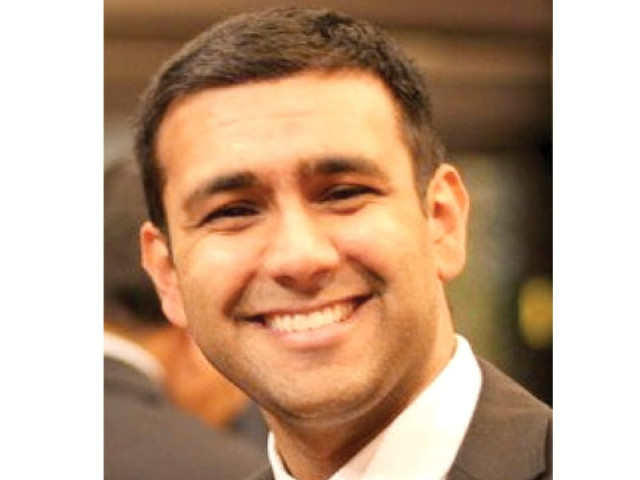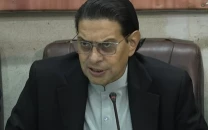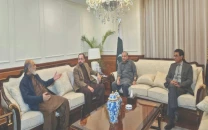Sharing strategies: Strengthen institutions, US policy aide tells Pakistanis
Homeland security adviser backs engagement on civil rights.

Sharing strategies: Strengthen institutions, US policy aide tells Pakistanis
A policy adviser to the US Department of Homeland Security (DHS), Ehsan Zaffar, has said that Pakistanis need to seriously consider the state of civil society in their country.
“All of the internal mechanisms are only going to work so long in the face of deteriorating social and economic conditions,” Zaffar told The Express Tribune.
He is in Pakistan on a trip to share strategies for engaging government leaders on civil rights issues as well as learning from Pakistani people.
Zaffar works at the office for Civil Rights and Civil Liberties at the Department of Homeland Security in Washington DC, where he advises the Secretary of Homeland Security on the civil rights and civil liberties implications of national security policies, programmes and procedures.
He also heads the department’s civil rights engagement initiatives with the Pakistani-American community.
Zaffar said what he gathered from people he had met so far was that Pakistanis deal with a lot of inadequate institutions and a lack of a “spirit of volunteerism”.
He said Pakistanis need to work on strengthening their institutions, adding that a key to resolving these issues is spreading the word and developing allies both in and outside the country.
He added that he found Pakistani people to be “incredibly resilient,” despite turmoil in the country, citing load-shedding in Punjab as an example.
“If I was dealing with 12 hours of load-shedding in Punjab, I’d lose my mind. The cultural fabric of the country is doing a lot to keep people going.”
His visit included meetings with law students, human and civil rights activists, musicians, lawyers and others.
“This is the work I do; how does the homeland connect with the people, how does government connect with minorities and take into account the needs and wants of people who probably have the least amount of resources to deal with these issues,” said Zaffar.
Securing the homeland: India and Pakistan
When asked about the efficiency of the DHS in reducing a possible terror threat, he responded, “I believe DHS has been very effective in minimising the terror threat, but there is always more work to be done. For me, it’s important to continue working to secure the country while ensuring that civil rights and civil liberties are protected.”
He also provided insight on ways Pakistan and India could implement a similar programme.
“As victims of violent extremism and terrorism, both Pakistan and India could benefit from a holistic approach to securing the homeland – particularly because it allows for a consolidation of information and breaks down the “silos” within which government security apparatus operate.”
Zaffar did not answer questions about the legality of the US drone policy around the world, saying he was not an expert on the subject, and therefore, unqualified to offer a legal opinion.
Engaging with Pakistani-Americans
Providing details of his engagement with the Pakistani American community, Zaffar said his work has aided the creation of security exceptions for pilgrims entering the US with Abe-ZamZam after Hajj as well as creating new policies for screening hijabis, and creating a limited English proficiency programme to include Urdu.
“Our consultation with Pakistani-American NGOs results in more accurate and culturally sensitive policy,” he said.
Racial profiling
A major issue among Pakistanis post 9/11 has been reports of racial profiling at US airports. Zaffar said that all Transportation Security Administration (TSA) officers receive stringent civil rights training.
“Both the TSA administrator and the homeland security secretary have repeatedly emphasised that there is no room for profiling and moreover, that racial profiling hampers and does not help keep the country’s airports safe.”
Published in The Express Tribune, September 8th, 2012.



















COMMENTS
Comments are moderated and generally will be posted if they are on-topic and not abusive.
For more information, please see our Comments FAQ